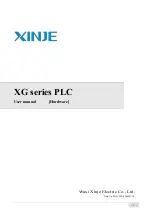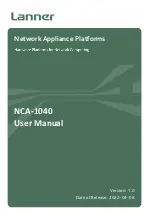
Page 15
10 Time codes
The transmission of coded timing signals began to take on widespread importance in the early 1950s. Especially
the US missile and space programs were the forces behind the development of these time codes, which were used
for the correlation of data. The denition of time code formats was completely arbitrary and left to the individual
ideas of each design engineer. Hundreds of dierent time codes were formed, some of which were standardized
by the Inter Range Instrumentation Group (IRIG) in the early 60s.
Except these IRIG Time Codes other formats, like NASA36, XR3 or 2137, are still in use. The board GPS170PCI
however generates the IRIG-B, AFNOR NFS 87- 500 code as well as IEEE1344 code which is an IRIG-B123 coded
extended by information for time zone, leap second and date. If desired other formats are available.
10.1 The time code generator
The board GPS170PCI generates modulated and un-modulated timecodes. Modulated signals are transmitting
the information by varying the amplitude of a sine wave carrier, un-modulated timecodes are transmitted by pulse
duration modulation of a DC-signal (TTL in case of GPS170PCI), see chapter IRIG standard format for details.
The sine wave carrier needed for modulated signals is generated in a digital way by a programmable logic device
on the board. The frequency of this signal is derived from the main oscillator of GPS170PCI, which is disciplined
by the GPS-system.
This leads to a sine wave carrier with high accuracy. Transmission of date is synchronized by the PPS (pulse per
second) derived from the GPS-system. The modulated time code has an amplitude of 3Vpp (MARK) and 1Vpp
(SPACE) into 50 O. The number of MARK-amplitudes within ten periods of the carrier denes the coding:
a) binary 0 : 2 MARK-amplitudes, 8 SPACE-amplitudes
b) binary 1 : 5 MARK-amplitudes, 5 SPACE-amplitudes
c) position-identier : 8 MARK-amplitudes, 2 SPACE-amplitudes
The DC-signal has the following pulse durations accordingly:
a) binary 0 : 2 msec
b) binary 1 : 5 msec
c) position-identier : 8 msec
GPS170PCI
Date: 12th July 2012
15















































